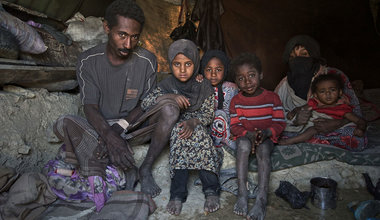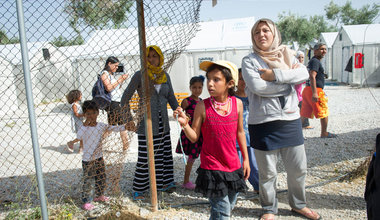UN chief calls for action on Myanmar and DPR Korea; launches reform initiatives
 United Nations Secretary-General António Guterres today reiterated his call for Muslims from Myanmar's Rakhine state to be granted nationality or at least a legal status that would allow them to lead a normal life, while also urging the international community to help provide assistance for the nearly 380,000 people who have fled into Bangladesh.
United Nations Secretary-General António Guterres today reiterated his call for Muslims from Myanmar's Rakhine state to be granted nationality or at least a legal status that would allow them to lead a normal life, while also urging the international community to help provide assistance for the nearly 380,000 people who have fled into Bangladesh.
“I call on the Myanmar authorities to suspend military action, end the violence, uphold the rule of law, and recognize the right of return of all those who had to leave the country,” the Secretary-General said in his first press conference since the opening of the 72nd session of the General Assembly.
Mr. Guterres repeated his call for “an effective action plan” to address the root causes of the situation, which he said he been left to fester for decades and has now escalated beyond Myanmar's borders, destabilizing the region.
The Security Council is due to discuss the situation this afternoon in an urgent closed-door meeting, following an official letter from the Secretary-General expressing his concern.
“The humanitarian situation is catastrophic,” he said, noting that at the time of his briefing to the press last week, there were 125,000 Rohingya who had fled into Bangladesh. That number has now tripled to nearly 380,000 and people are arriving hungry and malnourished and finding shelter in makeshift settlements or with host communities.
“I urge all countries to do what they can for humanitarian assistance to be provided,” Mr. Guterres said. He also called on Myanmar authorities to ensure delivery of aid by UN agencies, non-governmental organizations and others.
The humanitarian community has this week launched a $77 million appeal to aid some of the stateless refugees for the next three months.
Political solution needed for Korean peninsula
Also in today's press briefing, Mr. Guterres reiterated his call for a political solution to the situation in the Democratic People's Republic of Korea (DPRK).
He said that nuclear and missile tests by the county created “great instability and tension” on the Korean peninsula, throughout the region and beyond.
“Unity in the Security Council is critical. This week's unanimous adoption of a new resolution sends a clear message that the DPRK must comply fully with its international obligations,” Mr. Guterres said referring to new sanctions, which among other measures, limit the imports of crude oil and oil products, ban textile exports, and prevent new visas for DPRK workers overseas.
Despite calling on countries to ensure full implementation of this and other relevant Security Council resolutions, Mr. Guterres urged the Council to use diplomacy whenever possible.
Mediation and gender initiatives launched
The UN chief also announced two initiatives today that he said would strengthen the UN's work and which are part of his broader reform agenda.
Reiterating his call for “a surge in diplomacy,” Mr. Guterres announced a new High-Level Advisory Board on Mediation which will be comprised of 18 internationally-recognized personalities “who bring experience and skills, deep knowledge and extensive contacts” to this task.
He also launched his gender parity strategy for the United Nations, which aims to achieve parity at senior levels by 2021, and across the board by 2028.
“This roadmap fulfils an urgent need, a moral duty, an operational necessity – and a personal priority,” he said.
While lauding the appointment of 17 women and 15 men to his Senior Management Group, Mr. Guterres said change must be made in attitudes and approaches.
“We must lead by example on gender equality and women's empowerment, which is one of the greatest human rights challenges and opportunities in our world,” he said.
Concerns about Central African Republic
Among other issues raised during the press conference, Mr. Guterres highlighted the situation in the Central African Republic (CAR), which has seen a rise of 37 per cent in refugees and displaced persons in the past three months.
“This is grave cause for concern in a country where more than half the population are in dire need of assistance. I hope global leaders will give this crisis their attention during their talks next week,” he said.
A high-level event on CAR is scheduled for Tuesday.
 ONU
ONU







